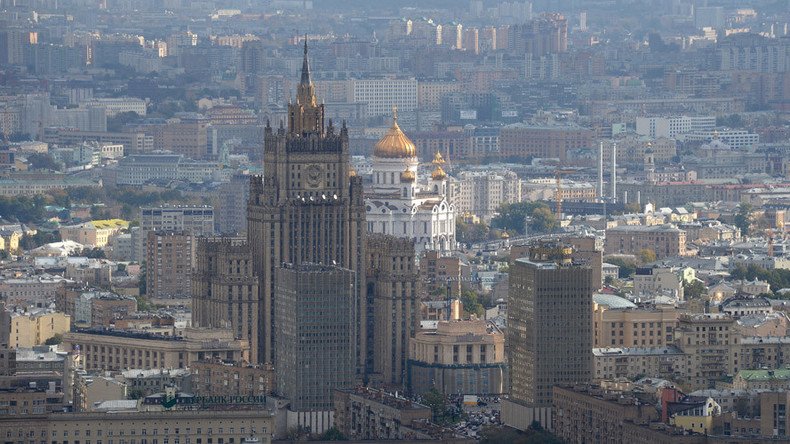‘Short-sighted and fruitless’ – Foreign Ministry blasts EU’s new extension of anti-Russia sanctions

The Russian Foreign Ministry has stated that the EU was unwise to extend its sanctions on Russia, as the move will only come back to hurt its own producers, while having no effect at all on Russia’s foreign policies.
“We consider that the new prolongation of the European Union’s economic sanctions against Russia, which violate international laws, is a continuation of Brussels’ short-sighted policy,” reads the statement released by the Russian Foreign Ministry on Friday, as quoted by TASS.
“We also see drawing connections between the discriminatory measures against Russia and observation of the Minsk accords as absurd, given the fact that Russia is not a party to Ukraine’s internal conflict,” the statement added. “In essence, the European Union has made Russian-EU relations a hostage to the Ukrainian regime’s irresponsible gambling.”
READ MORE: Putin: Russia ready to lift sanctions first, if certain that EU will follow suit
The ministry added that it would be very short-sighted of the EU to expect that Russia would change the direction of its foreign policy due to the sanctions.
The Foreign Ministry’s statement pointed out that the EU sanctions were also hurting European producers, as trade between Russia and the EU fell by 40 percent from 2014 to 2015 and the trend is continuing this year.
“By giving in to pressure from across the ocean, the European Union is primarily punishing its own producers. The slowdown in economic growth and growing unemployment that have been caused by the EU’s sanctions against Russia are facts documented in corresponding reports by the European Parliament,” the statement reads.
“We are not inclined to excessively dramatize this extension of sanctions, as they have some positive effect on our economy, which has been adapting to the restrictions regime and lowering its financial and technological dependence on EU nations,” the ministry stated.
“We hope that when and if common sense prevails in Brussels, the EU will set aside the logic of confrontation and containment, and we will renew our cooperation on a quality level,” the statement concludes.
READ MORE: EU extends sanctions against Russia for another six months
On Friday, the European Union announced that it was extending its economic sanctions on the Russian Federation until January 1, 2017. The restrictions were initially imposed in 2014 because of Russia’s alleged role in the Ukrainian crisis and the reunification of the Crimean Republic with the Russian Federation.
Russia replied by placing an embargo on food imports from EU countries in the summer of 2014. Earlier this week, President Vladimir Putin signed a decree ordering that the import restrictions be prolonged until the end of 2017.
READ MORE: Russia prolongs Western food embargo until end of 2017
Senior Russian officials have repeatedly emphasized that all attempts to coerce the country to change its policies through outside pressure will be futile. In 2014, President Putin’s press secretary, Dmitry Peskov, told TASS that “no sanctions would force Russia to make changes to the persistent line it follows in international affairs.” Peskov also called the Western sanctions “a double-edged weapon” in that, while causing certain discomfort for Russia’s economy, they were also hurting businesses in the countries that imposed them, not to mention the world economy as a whole.












